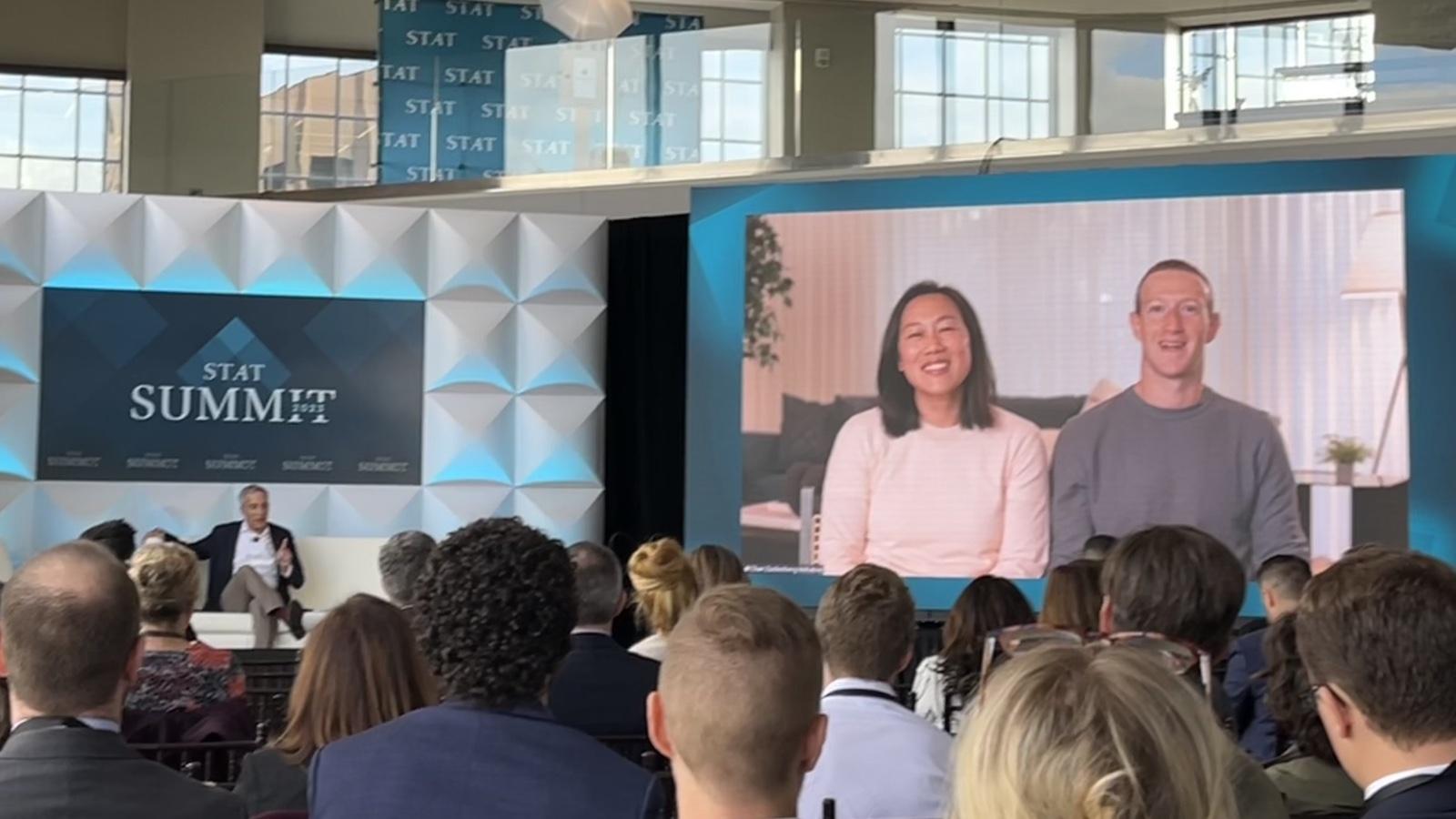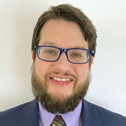Chan Zuckerberg Initiative to put $250M into new NYC Biohub

Mark Zuckerberg and Priscilla Chan appear virtually at the STAT Summit in Boston.
The Chan Zuckerberg Initiative is launching a new Biohub, its third, in New York City, working with Columbia University, The Rockefeller University, and Yale University to develop new bio-engineered immune cells that can aid in early detection of diseases. The Biohub constitutes a $250 million investment over 10 years from CZI, with additional investments of $10 million each from the state of New York and New York City.
Co-founders Mark Zuckerberg and Priscilla Chan announced the new research hub in a virtual presentation to the STAT Summit 2023 in Boston.
"Part of this is based on an insight from the history of science that a lot of major breakthroughs are preceded by the creation of new tools to observe things in new ways," Zuckerberg said at the event. "Most of the scientific funding out there goes towards study of specific things on relatively shorter time horizons, with relatively smaller teams [...] So, we just figured that our niche in this is basically figuring out and being able to support problems that are longer term in nature, that are more collaborative: bringing together scientists across universities, bringing together both scientists and engineers to do world-class engineering, and where the output of that is a tool that the scientific community can use. Rather than just kind of answering a question or producing an idea, we think that the production of a tool will be kind of more replicable in terms of empowering the scientific community more broadly."
Previous Biohubs in San Francisco and Chicago have focused respectively on cellular imaging and sensors to study inflammation. The New York hub will focus on using bio-engineered immune cells to detect and even treat diseases.
“Right now, diseases such as cancer and Parkinson’s are often diagnosed after the onset of obvious symptoms, making them harder or even impossible to treat," Chan said in a statement. "To change that, researchers and engineers at the New York Biohub will bioengineer immune cells to scout, report, and repair damage to our cells before it leads to serious illnesses."
Immune cells have access to the whole body and have a "molecular memory" that helps them recognise abnormalities and respond to them. Researchers will work to unlock that memory.
“The approach that CZ Biohub New York will take is groundbreaking and exciting,” Sohail Tavazoie, Leon Hess Professor at Rockefeller and part of the CZ Biohub NY leadership, said in another statement. “Engineering immune cells to detect signals of disease earlier than we’re able to now, before symptoms are obvious and the illness has advanced, would expand treatment options for a variety of conditions. We could see improvements in the outcomes of diseases like ovarian and pancreatic cancer, as well as neurodegenerative diseases like Parkinson’s or Alzheimer’s.”
At the STAT Summit, Chan and Zuckerberg talked about how their approach, based around enabling collaboration and creating novel tools, has proven a high-impact way to invest in science.
"Each project that we do, it serves two purposes," Zuckerberg said. "One is to achieve the scientific goal, and the other is for us to learn what worked and what didn't in that round of our work, so that way we can do better work the next time [...] Bringing together scientists across universities, engineering tool development was one of the big things that we wanted to double down on and try a few different things. So, now we're working on physical tools in Chicago, and we're working on more cellular engineering biological tools in New York. And I think we're just going to learn a lot over the next five years to figure out what are the next set of things that we should do after that."
"When you talk to great scientists, it really does feel like we're at an inflection point where we're able to know and measure and observe so much," Chan added. "The data sets are getting so large and the ability to extract meaningful insights, to work in a way that is actually precise, to be able to treat patients in a precise manner, to be able to actually understand what's happening in the human body, rather than just guessing by association, that feels like the moment that we're in, which is like, truly awesome and awe inspiring. And we're excited that there's a niche that we can play in to help move this along."












